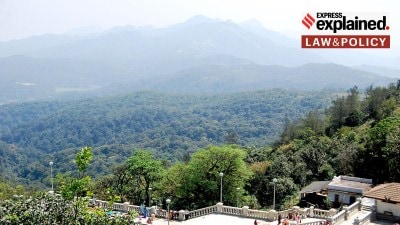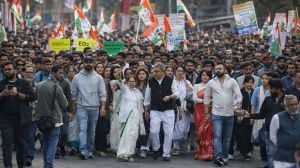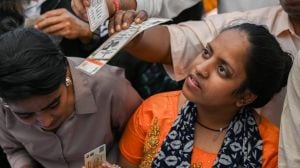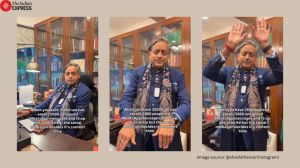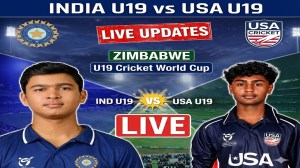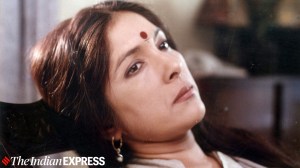The cowdung fixation
The trouble with political analysis is that it is usually clouded by the political proclivities of the analyst and since most Indian politic...

The trouble with political analysis is that it is usually clouded by the political proclivities of the analyst and since most Indian political analysts lean unshakably to the Left we have failed to observe a most interesting development. A development that should please the Left more than anyone if they believe sincerely that India8217;s 8216;8216;unity and diversity8217;8217; has been under threat since Atal Behari Vajpayee became Prime Minister. Even as someone who has never believed this I have to say that I am delighted that the most significant consequence of the Vajpayee government having remained successfully in power for five years is that it has resulted in the marginalisation of Hindutva8217;s loony Right.
Remember how powerful the RSS was when Vajpayee first became Prime Minister? Remember how he was ordered to drop the idea of making Jaswant Singh Finance Minister because the RSS felt his free market views were a threat to their swadeshi socialism? Remember how the likes of Gurumurthy and Govindacharya strutted about the national stage pronouncing confidently on matters of state? Remember those first few months of Vajpayee8217;s rule when he seemed to spend more time fighting the RSS and its crazier cohorts than the Opposition parties? If it was not economic liberalisation that they were screaming against then it was Christians in the Northeast. So reduced was the Prime Minister8217;s stature that Govindacharya dared declare him no more than a mukhauta? A mask. And, nobody protested too much because it certainly seemed that way. What a long time ago all that seems now. How much things have changed.
The BJP goes into the next general election as quite a different creature, having evolved in the past five years from being a political front of the RSS into a proper political party. This is such a healthy development that it should make the Left rejoice at there no longer being a threat to India8217;s 8216;8216;unity and diversity8217;8217; so I find myself puzzled by the gloomy musings of our more vocal 8216;8216;secularists8217;8217;.
If you read your daily rag carefully, you will notice that on a daily basis, since the election was announced, some Lefty historian, academic, hack, ex-bureaucrat or politician is to be found ranting on about 8216;8216;communal forces8217;8217;. And, if reading newspapers is not your thing then switch between our many news channels and you are bound to find yourself embroiled in at least one secular versus communal debate a day. If Arif Mohammed Khan is not being harangued for joining the BJP then there is some pompous creature or other berating V S Naipaul for making the BJP respectable by going to their party office.
In this tedious obsession with the 8216;8216;communal8217;8217; nature of the BJP, most analysts are missing the far more significant fact that the RSS has become less important than it has ever been. If Vajpayee becomes Prime Minister again it will be because of his personal stature and because he has quietly allowed the BJP to grow into a political party. He has done this by allowing second and third tiers of party leaders to grow in importance. This became evident in the recent round of Assembly elections in which we saw younger leaders being given responsibility while the old guard stood back and watched. Slowly, almost unnoticed, the BJP has occupied the space that the Congress Party vacated when it took the suicidal course of converting itself into a family firm.
If political analysts made the effort of stepping out of their ivory towers and air-conditioned TV studios they would notice that despite the alarm bells they continue to ring, the average voter no longer views the BJP as a monster. Nor does he view the BJP as any more communal than the Congress and one of the reasons for this is that it is not.
If the BJP has the stain of Gujarat to live with then the Congress has the stain of the 1984 Sikh massacres on its conscience. But, for ideological reasons most of our political analysts rarely refer to 1984 and when they do they dismiss it as an aberration.
On the other hand the BJP is not allowed for a moment to forget Gujarat or the demolition of the Babri Masjid. This has resulted in a twisted sort of political analysis that Uma Bharati calls the 8216;8216;cowdung fixation8217;8217;. When I interviewed her in Bhopal last week she said she had got quite used to being treated unfairly by the media because she knew that as long as the 8216;8216;cowdung fixation8217;8217; dictated analysis she would forever be seen against the backdrop of Ayodhya.
What is puzzling is that no one seems to find it necessary to remind Sonia Gandhi that the mosque was torn down under a Congress Prime Minister and that what happened in Gujarat was a pogrom modelled on what happened to the Sikhs when her husband was Prime Minister. But, it8217;s time to stop dwelling on the past and look instead to the future which looks increasingly as if it is likely to be shorn of such words as communalism and secularism because other things have started to matter more to the new Indian voter. Things like governance and the chance of a better life. If you need proof that the RSS and its more venomous sisters like the Bajrang Dal and the Vishwa Hindu Parishad have lost their power then pay attention when they next try to rally kar sewaks to build that temple in Ayodhya. You will notice that the crowds are so thin on the ground that if they are relied on as the main temple builders we can be sure that the temple will never get built.
Write to tavleensinghexpressindia.com
- 01
- 02
- 03
- 04
- 05


